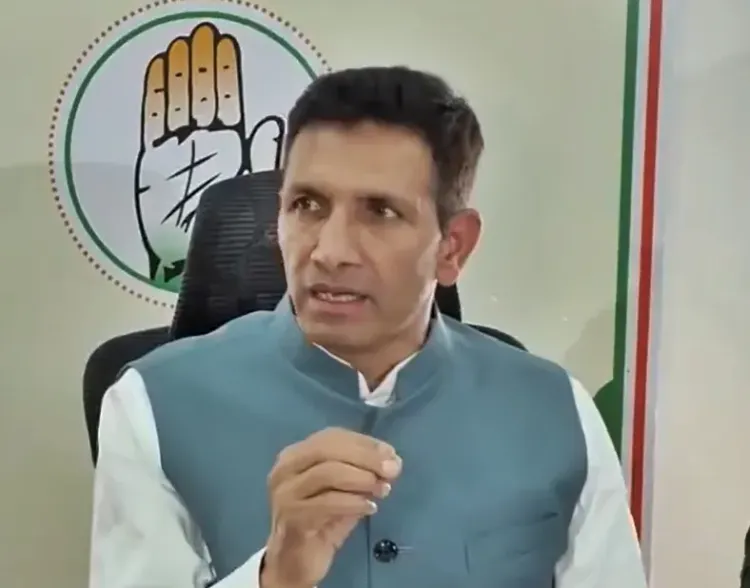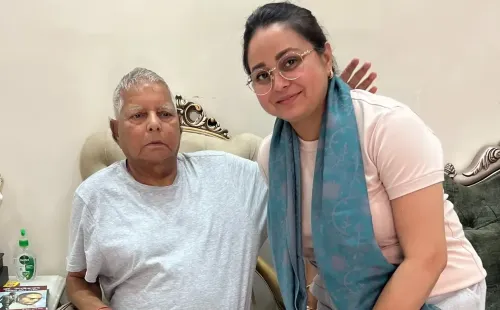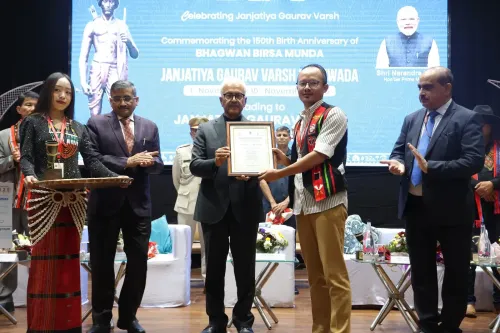Jitu Patwari Alleges MP Government is Concealing UCIL Waste Facts

Synopsis
Key Takeaways
- Jitu Patwari challenges the BJP government regarding UCIL waste safety.
- The Supreme Court supports the disposal of toxic waste at Pithampur.
- Allegations of misleading data presented by the ruling party arise.
- Concerns are voiced about potential health risks to the public, including cancer.
- Continued monitoring of waste disposal by the High Court is highlighted.
Indore, Feb 28 (NationPress) As the Supreme Court on Thursday authorized the Madhya Pradesh government to proceed with the disposal of Union Carbide India Ltd (UCIL) waste at the Pithampur industrial site, the political uproar surrounding this matter continues to intensify.
The opposition party, Congress, has accused the ruling BJP of providing "inaccurate data" and "deceptive reports" to the court while allegedly hiding crucial facts regarding water contamination in the Pithampur industrial region.
State Congress leader Jitu Patwari expressed his discontent with the BJP government on Friday, emphasizing that even though Indore and Pithampur serve as strongholds for the party, its leaders have remained silent on this pressing issue.
He stated, "Currently, there are two senior ministers from Indore, and they must advocate for public health. The UCIL waste poses a risk of cancer for the residents of Pithampur."
The Congress leader, who represents Indore, challenged the BJP government to undertake a groundwater survey surrounding the Ramky factory premises to establish the truth.
"I urge the MP government to carry out a groundwater survey around the Ramky factory. If there is no toxicity in Union Carbide's waste, then Ramky should conduct tests on the water within a 10 km radius of the facility. If no cancer-causing elements are identified, I will publicly apologize! The court instructed the state government to make waste disposal decisions based on factual information, yet the government is suppressing vital data," Patwari remarked.
On Thursday, the Supreme Court declined to intervene with the Madhya Pradesh High Court’s ruling that permitted the transfer of toxic waste from the 1984 Bhopal gas tragedy site to Pithampur in Dhar district for disposal.
A bench comprised of Justice B.R. Gavai and Justice Augustine George Masih dismissed a petition contesting the December 3, 2024, High Court ruling that mandated the state government to remove the toxic waste from the UCIL site.
The bench acknowledged that the High Court’s decision was grounded in recommendations from an expert committee including directors of the National Environmental Engineering Institute (NEERI), the National Geophysical Research Institute (NGRI), and the chairman of the Central Pollution Control Board (CPCB).
The court remarked that both NEERI and NGRI are "prestigious and recognized institutes" in their fields, and courts frequently depend on their expert opinions on environmental issues.
The Supreme Court stated that the state government reached its conclusion based on the expert panel’s endorsement. The High Court had also voiced concerns regarding the sluggish progress in addressing the waste disposal situation and was actively supervising the matter.
"It is clear that only after the High Court's intervention did the proceedings advance. Since the High Court is overseeing the situation, we see no grounds to interfere with its ruling," stated the bench.
The apex court also instructed members of civil society and other intervenors to voice their concerns before the High Court, which would take them into account. Additionally, parties were permitted to submit recommendations to the High Court or the state government, which would then relay them to the expert committee for evaluation.
On January 1, approximately 377 tonnes of hazardous waste from the defunct UCIL factory were transported to the Pithampur industrial area, located about 250 km from Bhopal and 30 km from Indore, for disposal.
The 1984 Bhopal gas tragedy, recognized as one of the world’s most catastrophic industrial disasters, occurred when highly toxic methyl isocyanate (MIC) gas leaked from the Union Carbide factory during the night of December 2-3. The disaster resulted in the loss of 5,479 lives and adversely affected over five lakh individuals.









